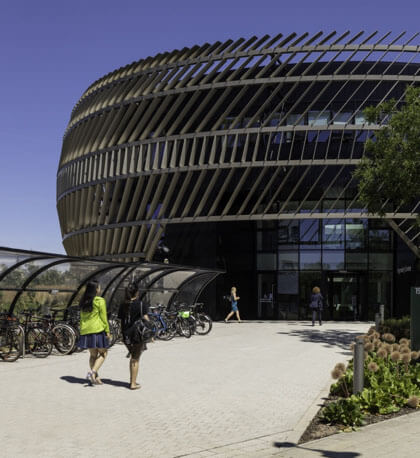
The market for polymeric biomaterials is growing quickly, but despite this growth, it is widely recognised in the industry that the ‘holy grail’ solution has not yet been developed. The ideal biomaterial for use in regenerative medicine must be biocompatible, promote tissue regeneration, have non-toxic biodegradation, have mechanical properties suited to the host tissue and good handling properties in a clinical environment. 4D Medicine has developed a patented range of novel polymeric 3-D printing resin-inks that promise, uniquely, to meet all of the above requirements and offer important advantages over the next best alternatives.
The company has developed a new class of materials – liquid resins that can be printed into solid 3D scaffold implants to help patients recover from major medical procedures. The breakthrough resulted from a 12-year programme of tissue engineering and biomaterials research by the Dove Research Group, led by Professor Dove at University of Warwick and later transferring to Birmingham, which focussed on modifying polymer chemistry and structure to both encourage healthy tissue growth and to optimise how implanted materials degrade.
The polycarbonate-based resins are novel bioresorbable materials with good shape memory, tunable mechanical and chemical properties and promising tissue-healing performance. The composition of the resins is protected by a family of patents exclusively licensed to the company as part of the spin-out process.
The polymers and their degradation products are non-toxic and their properties can be tuned to suit a wide range of tissue regeneration applications. These 3-D printable resin-inks will enable medical implants to be fitted to the exact shape and dimensional requirements of each patient, optimising outcomes in applications such as cancer treatment and reconstructive surgery. Initial in-vitro and in-vivo testing has provided strong evidence of the anticipated biocompatibility and tissue regeneration properties that will enable multiple stakeholders in the health sector to benefit from improved treatment options for a range of life-changing conditions, not least the patients themselves. It is estimated that the UK market size for lumpectomy devices is 26,000 devices per year.
Ultimately, the aim is to build a substantial business, supplying liquid resins and 3-D printed components to medical device manufacturers and medical practitioners across the UK, EU and USA.
The company has secured seed investment from SFC Capital and grants from Innovate UK to develop its first range of implantable medical devices that will improve patient quality of life by accelerating healing and recovery after common surgical procedures.

In oculis quidem se esse vult, summumque malum et, quantum.
In oculis quidem se esse vult, summumque malum et, quantum.
In oculis quidem se esse vult, summumque malum et, quantum.
In oculis quidem se esse vult, summumque malum et, quantum.
In oculis quidem se esse vult, summumque malum et, quantum.
In oculis quidem se esse vult, summumque malum et, quantum.
In oculis quidem se esse vult, summumque malum et, quantum.
In oculis quidem se esse vult, summumque malum et, quantum.
In oculis quidem se esse vult, summumque malum et, quantum.
In oculis quidem se esse vult, summumque malum et, quantum.
In oculis quidem se esse vult, summumque malum et, quantum.
In oculis quidem se esse vult, summumque malum et, quantum.
In oculis quidem se esse vult, summumque malum et, quantum.